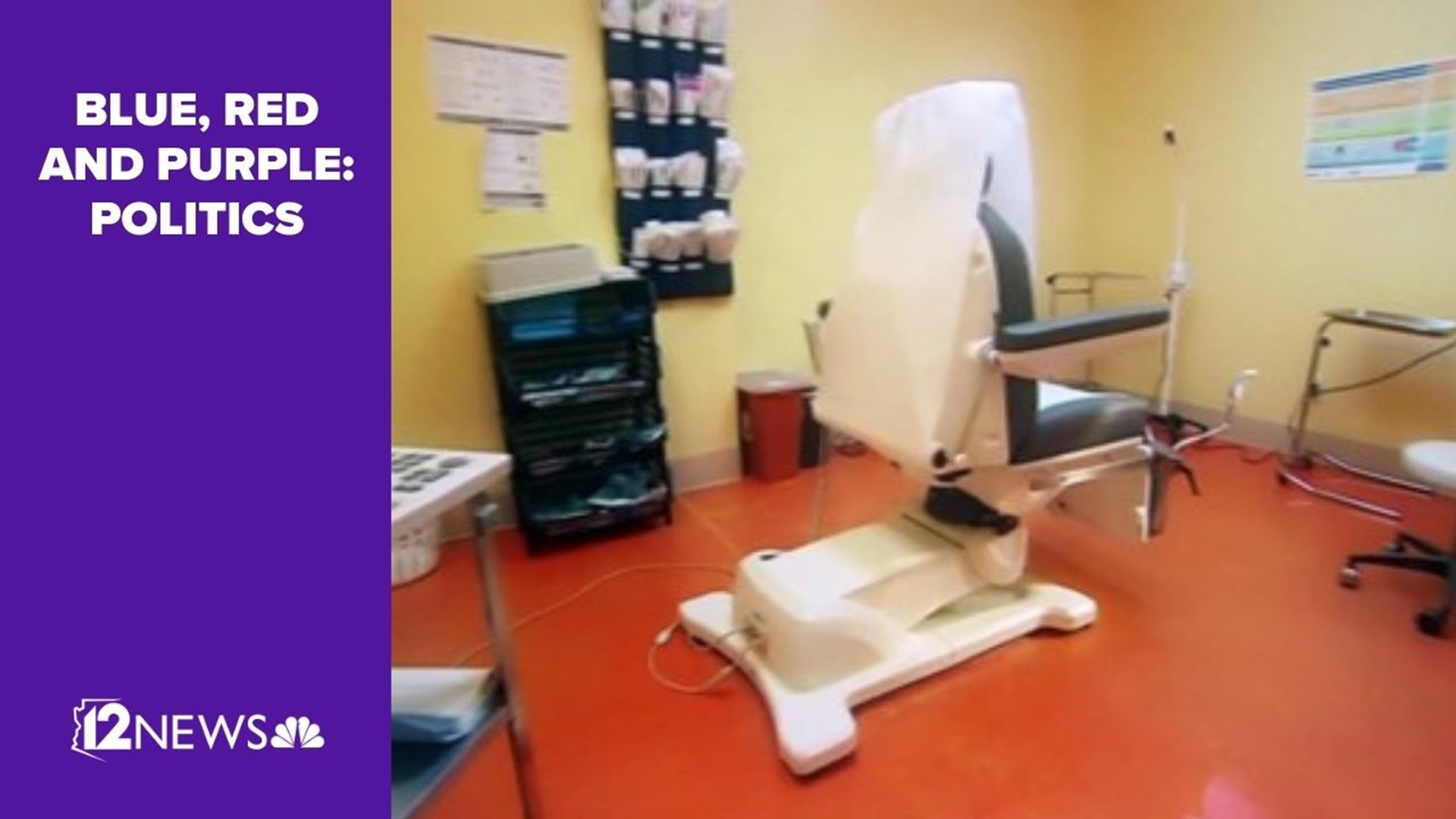PHOENIX — After working to pass a 15-week abortion ban earlier this year, State Sen. Nancy Barto of North Phoenix achieved another signature accomplishment to add to her resume of socially conservative initiatives dating back to 2007.
Then came Friday’s U.S. Supreme Court decision overturning Roe Vs. Wade.
“As you can imagine, this decision was incredibly heartening,” Barto said in a written statement to 12 News. “Now, with the Roe boogeyman out of the way, the people’s voice can be heard through their elected representatives on the issue of abortion.”
Although Barto and her allies are celebrating, the Supreme Court ruling also raised questions about how the new Arizona law should be applied.
Barto and Gov. Doug Ducey, who signed the new abortion law in March, cannot agree on what it actually means.
In his March 30th letter announcing the signing of Senate Bill 1164, Governor Ducey wrote, “This bill prohibits abortions after 15 weeks except in medical emergencies affecting the life and health of the mother. These time limitations are similar to legal time frames in the vast majority of the western world.”
A spokesman for Gov. Ducey told 12 News Tuesday “the governor’s intention was clear” when he signed the law that abortions should be banned after 15 weeks.
The bill dictates those parameters. But also buried in the 5-page bill is a condition that states, “This act does not… repeal, by implication or otherwise, section 13-3603.” Section 13-3603 is a 1901 law that completely bans abortion except to save the mother’s life.
Those found guilty of assisting with an abortion face 2-5 years in prison. Before last Friday when Roe V. Wade was in effect, the law was mute. But that constitutional right is now gone.
When asked which law should be enforced, Barto told 12 News the pre-Roe law should take precedence.
“Now that Roe is no longer an obstacle, this law (13-3603) should be enforceable in most counties in Arizona,” Barto said in a written statement to 12 News. “We can expect legal challenges to ensue, but the fact is, Arizona joins other states protecting women and the preborn to the greatest degree possible in law right now.”
One constitutional attorney told 12 News the state faces a dilemma.
“I think there’s going to be some means to resolve which of these two statutes apply going forward,” said Stefanie Lindquist at ASU’s Center for Constitutional Design. “The way I read it, the 2022 statute specifically says that this old statute is not superseded.”
Lindquist said the state legislature could take up the issue in a special session to provide clarity, although there’s no indication that’s going to happen.
As 12 News reported, Planned Parenthood of Arizona is operating under the assumption the 1901 law is in effect and has ceased performing abortions in Arizona.
There’s something else to consider.
A 1973 injunction issued in Pima County Superior Court at the request of Planned Parenthood Center of Tucson blocked the 1901 law from being enforced. Lindquist told 12 News a county or state prosecutor would have to go to court to request to lift the injunction.
“There may have to be a suit brought to lift that injunction and thus activate the 1901 law,” Lindquist said.
A spokesperson for State Senate Republicans said it would be most appropriate for the Attorney General’s Office to initiate that action.
On Friday, Attorney General Mark Brnovich said his office was reviewing the matter.
Arizona Politics
Track all of our current updates on Arizona politics on our 12 News YouTube channel. Subscribe for updates on all of our new uploads.

